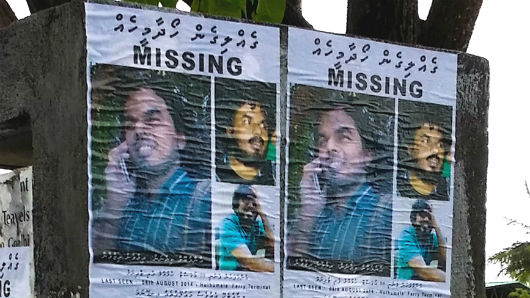Rilwan killed by Maldives group linked to al-Qaeda, presidential commission reveals
The group recruits locals to fight in Syria.

01 Sep 2019, 09:00
Ahmed Rilwan Abdulla was abducted and killed five years ago by a local extremist group linked to al-Qaeda, the presidential commission on deaths and disappearances has concluded, confirming long-held suspicions about the involvement of radicalised gangs and a cover-up by the former administration.
The Maldives Independent journalist was murdered at sea in the early hours of August 8, 2014, the inquiry commission’s chair Husnu Suood told the press on Sunday, three weeks after declaring that suspects have been identified with enough evidence for prosecution and pledging to disclose findings.
But statements from three witnesses were “not conclusive” to establish death as there were discrepancies in descriptions of how the murder was committed, he stressed.
After he was abducted at knife-point and forced into a car outside his apartment building in the capital suburb’s Hulhumalé, Rilwan was put on a dinghy and transferred to another vessel, Suood said.
Become a member
Get full access to our archive and personalise your experience.
Already a member?
Discussion
No comments yet. Be the first to share your thoughts!
No comments yet. Be the first to join the conversation!
Join the Conversation
Sign in to share your thoughts under an alias and take part in the discussion. Independent journalism thrives on open, respectful debate — your voice matters.




